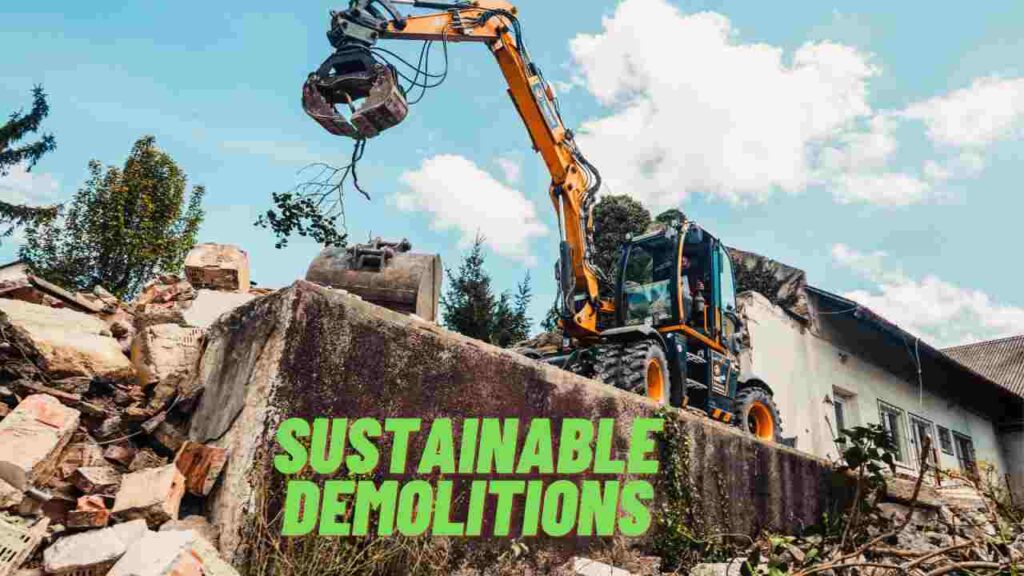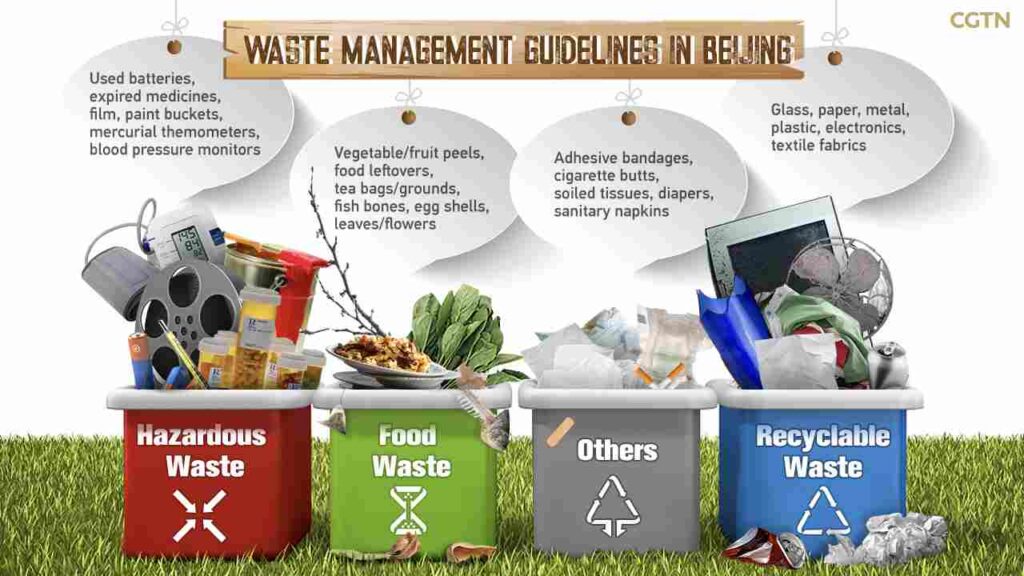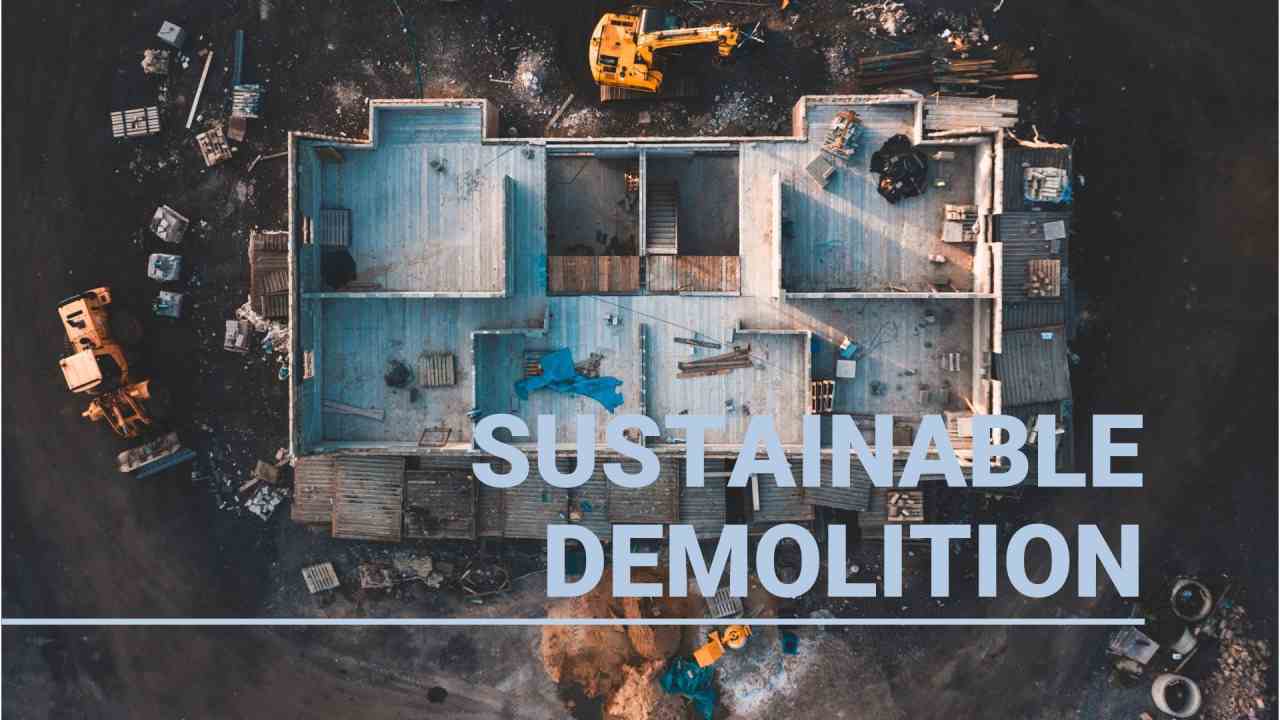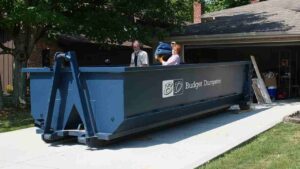Planning a demolition project in Michigan? It’s crucial to understand the state’s environmental regulations to ensure a smooth and compliant process. Michigan has specific laws and guidelines aimed at protecting the environment during demolition activities. These regulations cover a wide range of concerns, from handling hazardous materials to proper waste disposal and air quality management. In this guide, we’ll explore the key environmental regulations for demolition in Michigan, providing you with the necessary knowledge to navigate your project responsibly and efficiently along with the guidance of A & B Junk. Let’s dive into the specifics to help you stay on the right track.

Whether you’re a contractor, property owner, or developer, staying informed about these rules is essential to avoid penalties and contribute to environmental preservation. Proper compliance not only ensures legal adherence but also promotes sustainable practices in the construction industry. By understanding and following these regulations, you can play a vital role in protecting Michigan’s natural resources and public health, particularly when coordinating commercial demolition services.
Overview of Environmental Regulations
Environmental regulations for demolition in Michigan are designed to protect natural resources and public health during construction activities. These regulations encompass various aspects such as air quality, water pollution, waste management, and hazardous material handling. Safety measures in commercial demolition are a crucial part of these regulations, ensuring that projects are conducted in a manner that minimizes environmental impact and complies with state laws. Adherence to these rules not only protects the environment but also safeguards workers and the surrounding community.
Michigan Department of Environment, Great Lakes, and Energy (EGLE)
The EGLE is the primary regulatory body overseeing environmental matters in Michigan, including demolition activities. They issue permits, enforce regulations, and provide guidance to ensure compliance with environmental laws. Preparing for unexpected challenges is essential for contractors and property owners, who must liaise with EGLE to obtain necessary permits and approvals before commencing demolition projects. This preparation includes anticipating potential regulatory hurdles and ensuring that all environmental compliance measures are thoroughly addressed.
Types of Permits Required
Demolition projects in Michigan often require permits from EGLE and possibly other local authorities. These permits ensure that the demolition activities meet environmental standards regarding air quality, water discharge, hazardous materials, and waste disposal. Key considerations for hiring a commercial demolition company include ensuring they are knowledgeable about and compliant with these permitting requirements. Depending on the scope and location of the project, permits may include demolition permits, asbestos abatement permits, stormwater discharge permits, and more. It is crucial to choose a company that is experienced in navigating these regulatory frameworks to avoid delays and ensure a smooth project execution.
Handling of Hazardous Materials
Demolition activities can involve hazardous materials such as asbestos, lead-based paint, PCBs, and mercury-containing devices. Michigan regulations mandate strict protocols for identifying, handling, and disposing of these materials to prevent environmental contamination and health risks. Certified professionals must conduct thorough inspections and follow specific procedures for safe removal and disposal of hazardous materials during demolition.
Waste Management and Disposal Guidelines
Proper waste management is crucial during demolition to minimize environmental impact and ensure compliance with Michigan regulations. Guidelines include sorting materials for recycling, proper disposal of non-recyclable materials, and using licensed waste disposal facilities. Contractors must maintain records of waste disposal to demonstrate compliance with environmental laws.

Air Quality and Dust Control Measures
Demolition activities can generate dust and airborne particles that may impact air quality and public health. Michigan regulations require contractors to implement dust control measures such as water spraying, covering debris, and using containment barriers. Regular monitoring of air quality during demolition is essential to mitigate potential health risks and comply with environmental standards.
Water Pollution Prevention
Demolition can pose risks to water quality through sediment runoff, stormwater discharge, and potential contamination from hazardous materials. Michigan mandates erosion and sediment control practices, stormwater management plans, and prevention measures to safeguard water bodies. Proper implementation of these measures helps prevent pollutants from entering waterways and ensures compliance with state environmental regulations.
Noise and Vibration Management
Demolition activities often produce noise and vibrations that can disturb nearby residents and businesses. Michigan regulations establish noise limits and require contractors to implement mitigation measures such as using noise barriers, scheduling noisy activities during permissible hours, and monitoring vibration levels. Compliance with these regulations minimizes disruptions to the community and addresses potential environmental impacts.
Asbestos and Lead-Based Paint Regulations
Michigan has strict regulations regarding asbestos-containing materials (ACMs) and lead-based paint (LBP) encountered during demolition. These regulations mandate surveys to identify ACMs and LBP, safe removal by licensed professionals, proper disposal, and notification to regulatory agencies. Compliance ensures protection of workers, residents, and the environment from the health hazards associated with asbestos fibers and lead dust.
Environmental Impact Assessment
Before initiating a demolition project, Michigan requires an environmental impact assessment (EIA) to evaluate potential environmental effects. The assessment considers factors such as habitat disruption, air and water quality impacts, noise levels, and historical preservation. Based on the EIA findings, mitigation measures may be recommended to minimize adverse environmental impacts and ensure sustainable development.
Enforcement and Penalties
Michigan enforces environmental regulations through inspections, audits, and enforcement actions to ensure compliance with demolition permits and environmental laws. Violations of regulations, such as improper waste disposal or failure to obtain necessary permits, can result in penalties ranging from fines to project shutdowns. Contractors and property owners must adhere to regulations and cooperate with regulatory agencies to avoid penalties and maintain environmental stewardship.
Conclusion
n conclusion, navigating the environmental regulations for demolition in Michigan requires diligence and adherence to comprehensive guidelines set forth by agencies like the Michigan Department of Environment, Great Lakes, and Energy (EGLE). These regulations are essential for safeguarding natural resources, maintaining air and water quality, and minimizing health risks associated with hazardous materials. By obtaining the necessary permits, implementing proper handling and disposal practices for hazardous materials, and following stringent waste management protocols, contractors and property owners can contribute to sustainable development while avoiding potential penalties. Continued cooperation with regulatory authorities, ongoing monitoring of environmental impacts, and proactive mitigation efforts are crucial for ensuring that demolition activities in Michigan align with environmental conservation goals and protect the well-being of communities and ecosystems alike.
FAQs
What permits are required for demolition projects in Michigan?
Demolition projects typically require permits from the Michigan Department of Environment, Great Lakes, and Energy (EGLE). Specific permits may include demolition permits, asbestos abatement permits, and stormwater discharge permits.
How are hazardous materials handled during demolition in Michigan?
Hazardous materials like asbestos and lead-based paint must be identified through surveys. Certified professionals handle their removal and disposal according to strict state regulations to prevent environmental and health risks.
What are the key requirements for waste management during demolition?
Demolition contractors must adhere to waste management guidelines, sorting materials for recycling and disposing of non-recyclables at licensed facilities. Proper documentation of waste disposal is required to demonstrate compliance.
How does Michigan regulate air quality during demolition activities?
Contractors must implement dust control measures such as water spraying and containment barriers to minimize airborne particles. Regular monitoring ensures compliance with air quality standards.
What are the penalties for non-compliance with environmental regulations in Michigan?
Violations of environmental regulations can result in penalties ranging from fines to project shutdowns. It’s crucial for contractors to adhere to regulations, obtain permits, and follow best practices to avoid penalties and ensure environmental stewardship.




